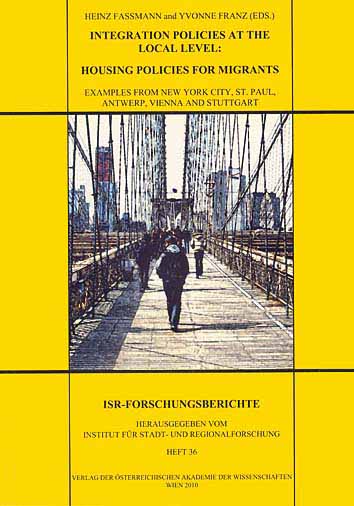

Both European and American cities, in particular major cities with strong and diversified economies, attract immigrants from all over the world. The segregation of migrants within a city as well as the affordability and quality of housing for migrants are central issues that affect the quality of life in general. Finding a place to live is a crucial aspect of the process of successful structural integration of migrants in host societies – besides finding employment and gaining access to good education. On the one hand, the housing conditions and the spatial distribution patterns of migrants in a city can be considered important indicators for the status quo of the structural integration in the receiving society; on the other hand, housing policies are an important part of overall social policy at the local level – with a strong impact on future processes of integration among migrants and their descendants. Beginning in June 2009 the Institute for Urban and Regional Research organized a seminar on integration policies at the local level with a special emphasis on housing policy for migrants. The seminar was supported by the GMF (German Marshall Fund of the United States) and was part of the policy initiative “Immigration and Integration” of the GMF. The seminar was a 2-day event at the University of Vienna comprising lectures, excursions and a political debate with representatives of the media and the city of Vienna. The seminar served to enable communication between researchers, stakeholders and journalists from the United States and from Vienna, to initiate the mutual learning process, and to compare and evaluate market-driven and social welfare housing policy. The Institute for Urban and Regional Research invited prominent scholars from the United States and from throughout Europe to hold lectures and to try to answer the following questions: What is the present situation concerning immigration, the foreign population and its demographic development? What are the typical housing conditions for migrants in the specific urban contexts? What are the public policies of local authorities on housing in general, in particular housing conditions for vulnerable and low-income groups? What is the situation surrounding the availability, access and affordability of decent housing for migrants within the framework of national and regional policies? And finally: What are the experiences of European and North American cities with the results of local policies on housing, in particular of interventions and measures, for the integration of migrants and the social cohesion of their communities? We found the answers presented during the seminar to be innovative and interesting, and we decided to publish the lectures to give a wider audience the chance to participate in this debate. It is obvious that the transatlantic dialogue is becoming weaker and the cooperation within Europe stronger, which was an additional motivation to publish the results to signal that the Europe-US dialogue should continue.
2010
978-3-7001-6853-9
978-3-7001-7687-9
112 Seiten,
24x17 cm, broschiert